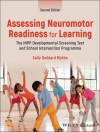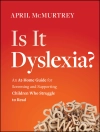This is the first book devoted to the P scales; there has been no
published research on the P scales. There is no documentation
of the benefits that schools have derived from using the P scales,
and no account has been given of how easy or otherwise teachers
have found it to use the P scales in the assessment of their
pupils. The book introduces the P scales and their application to
teachers, describes the various subject areas of the scales and how
to apply them in the assessment of pupils attainment levels. The
book also describes how schools can use the assessment data
collected in self-evaluation and setting of improvement targets for
their pupils. It also discusses the P scales in terms
of the validity and reliability of data collected and investigates
the extent to which the scales measure what they were designed to
measure. Head teachers have recounted their experiences of
using the P scales, outlining the difficulties they have had in
their schools using the scales and the benefits the schools have
derived.
Cuprins
About the authors.
Preface.
Acknowledgements.
CHAPTER 1 The National Curriculum and the Development of the P
scales (Francis Ndaji and Peter Tymms).
CHAPTER 2 P scales – The Context (Barbara
Riddick).
CHAPTER 3 A Description of the P scales and Their Use in
Assessments (Francis Ndaji and Peter Tymms).
CHAPTER 4 Reliability and Validity of the P scales Data
(Francis Ndaji and Peter Tymms).
CHAPTER 5 Users’ Perspectives (Celia Dickinson, Bob
Coburn, Helen Pettinger, John Parkes, Ginny Brown, Di Brown, Bernie
Tetchner, Jo Gilbert and Mary Adossides).
CHAPTER 6 Research into the P scales (Francis Ndaji and Peter
Tymms).
CHAPTER 7 Ways Forward (Francis Ndaji and Peter
Tymms).
Index.
Despre autor
Francis Ndaji is the Manager of the P scales project at
the Centre for Evaluation and Monitoring at Durham University,
which runs projects monitoring the progress and attitudes of a
million pupils across the UK each year. He previously taught in a
secondary school before joining the research division of the
National Metallurgical Development Centre of Nigeria, where he was
Chief Chemist and Head of Division. He is a member of the
Educational Evaluation Group.
Peter Tymms is Director of the Centre for Evaluation and
Monitoring at Durham University. Peter was a teacher for many years
before becoming an academic; his main areas of research include
monitoring, assessment, interventions and research methodology
generally. He devised the PIPS project, which is designed to
monitor the affective and cognitive progress of children through
primary schools. He is a member of the Advisory Board of the
UKCe MGA of the Office of National Statistics.











